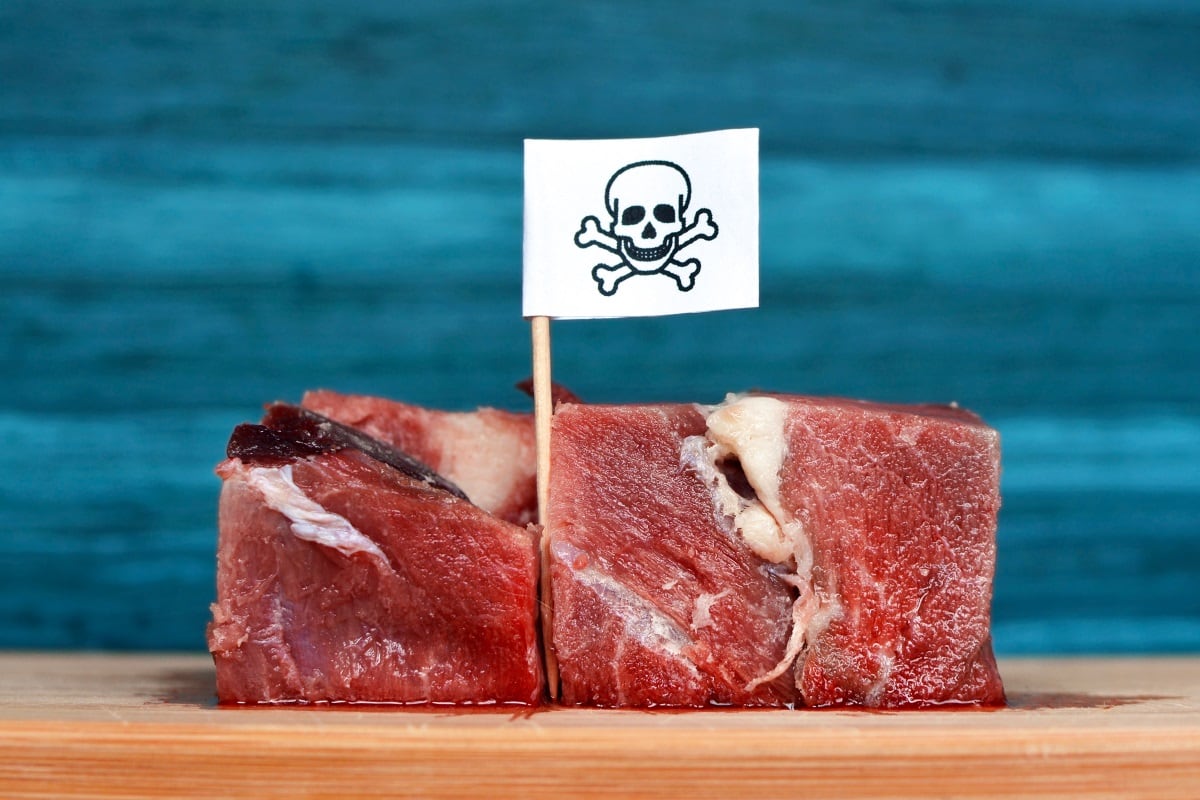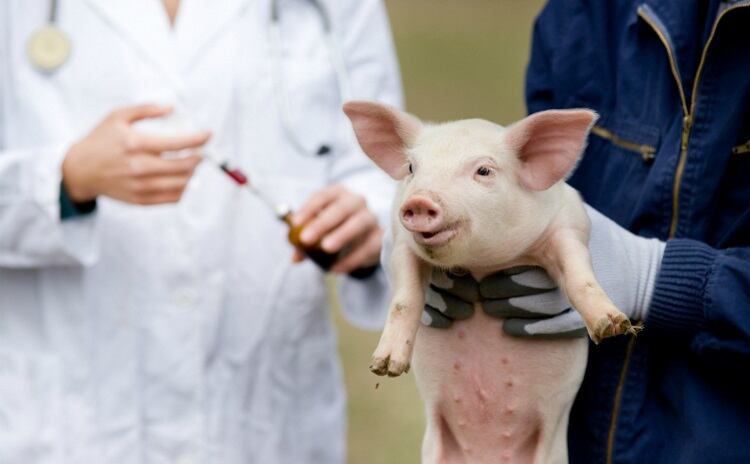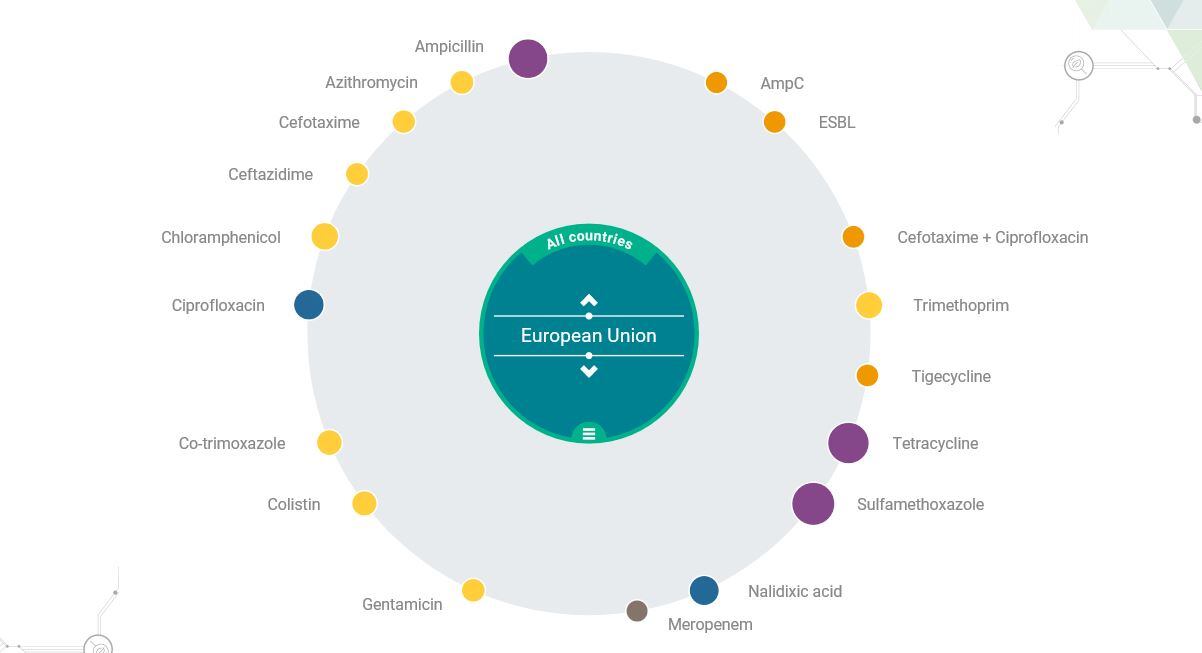Antibiotic resistant superbugs are one of the most significant public health threats of our time.
Globally, antibiotic resistant bacteria are linked to around 700,000 deaths a year. This figure could increase to 10m by 2050 if current trends continue, according to a report commissioned by the UK government.
The development of antimicrobial resistance (AMR) is closely linked to the over-use of antibiotics, particularly in livestock rearing.
COVID-19 has driven home the link between meat consumption, production and possible disease.
As Michael Pollan, the American author and journalist observed: "We know that the overuse of antibiotics in meat production is leading to the evolution of antibiotic resistant microbes-- the next pandemic could easily begin on an American feedlot.”
Food In-Depth (FoodID), a start-up co-founded by natural meat pioneer Bill Niman to bring some 'much needed' transparency to the meat sector, believes that cutting the use of antibiotics in animal production should be a global priority.
“Seventy-five percent of the antibiotics used globally are given to animals raised for food -- there is no doubt that the excessive and improper use of antibiotics in livestock production is accelerating the development of antimicrobial resistance. Curtailing antibiotic use in animals will slow the threat of antimicrobial resistance and help preserve the life-saving effectiveness of current and future drugs,” Scott Levitan, who is responsible for marketing at FoodID, told FoodNavigator.
Levitan is not alone in this conclusion. The World Health Organisation has called for a total ban on the use of antibiotics to promote growth in animals destined to enter the food chain.
The EU banned the use of growth promoting antibiotics back in 2006 but regulators have stressed that differences in antibiotic usage levels remain between EU member states. In order to tackle this, the European Commission adopted the EU One Health Action Plan against AMR in 2017.
In February of this year, the EC claimed ‘substantial progress’ has been made on the Action Plan, including meetings of the AMR One Health Network and of the Health Security Committee to ‘enhance cooperation and coordination’ and One Health visits to Member States to ‘support the implementation’ of national One Health plans. In reality, it appears the wheels of change are turning slowly on the ground.
European consumer attitudes are evolving at a faster pace. According to the most recent Eurobarometer survey a majority of Europeans – 56% - agree that sick farm animals ‘have the right to be treated with antibiotics’. However, a research paper recently published in PLoS One shows a far more nuanced approach.
The study, which examined attitudes to livestock welfare interventions across five European countries, concluded that people linked intensive animal agriculture and poor conditions with the spread of diseases and expressed a preference for interventions that improved conditions and reduced the need for medical interventions such as the use of antibiotics.
“The public have concerns regarding intensive production systems, in relation to farm animal welfare, naturalness and the use of antibiotics. The most preferred interventions were the most ‘proactive’ interventions, namely improved housing and hygiene measures. The least preferred interventions were medicine-based, which raised humane animal care and food safety concerns amongst respondents,” the researchers concluded.
Bringing transparency to the table
FoodID is a scientific food testing startup working to enable food transparency and the authentication of claims such as ‘antibiotic-free’ or ‘hormone-free’.
“Until now you could claim you didn’t know what is in the food you produce, serve, sell or consume because it was too hard to know. Testing solutions for 'antibiotic-free' and 'hormone-free' labels were just not practical for the modern livestock industry. Those claims had been based on producer assertions and were not backed by science and data. Now, with FoodID, you can validate your claims. You can know,” Levitan explained.
Given the scandals, such as repeated horsemeat issues in Europe, consumers are often looking for added assurance about the meat they buy. Testing platforms like FoodID could ‘absolutely’ be leveraged as a tool to build trust by manufacturers and retailers, the natural meat advocate said.
“People are demanding greater transparency and a stronger connection with their food. Verification, through testing, will definitely help restore trust in label claims.”
While claims like hormone-free aren’t such a big deal in the EU, where the use of growth hormones is banned, Niman believes that testing can also be leveraged to build trust and boost the reputation of US livestock.
“The FoodID testing platform could provide assurance to trading partners that the meat they are buying is antibiotic and hormone free. Until now, that assurance was difficult, as testing solutions were slow, expensive and lacked the sensitivity to detect even low levels of substances. With FoodID, we have a platform that works at the speed and scale of the supply chain. It is comprehensive, rigorous and operates in near real time.”
A new testing solution: Fast, effective and cheap
Niman is bullish on how FoodID stacks up against the competition. In a recent blog post he wrote: “Some current testing technologies are slow and expensive; others do not test for enough substances with sufficient sensitivity to pick up contaminated meat. Mass spectrometry tests are far too slow to work at plant line speeds, thus its usefulness in the real world is limited. Faster, cheaper testing technologies lack the comprehensiveness to detect the bulk of substances administered in feed and water. And the sensitivity to detect even low levels of substance. This current lack of good options has contributed to the general lack of testing.”
In contrast, the FoodID platform tests for seven drug families representing 95% of the most common antibiotics and other adulterants administered via feed and water. “This includes beta agonists and hormones,” Levitan told us.
According to the company it is ‘rigorous’, with sufficient sensitivity to detect low levels of substances. It is also fast - working in near real-time at processing plant line speed. And, FoodID said, it is a ‘hundred times’ more affordable than comparable alternatives.
“Our test kit uses lateral flow which is the same technology used by pregnancy tests. It delivers results in near real time at costs that are substantially more affordable than alternatives.”
FoodID has secured investment from S2G Ventures and OCA Ventures.
“We invest in the future and believe in the huge opportunity for FoodID to increase food transparency and make testing of this nature the new norm,” said Chuck Templeton, managing director of S2G Ventures, who also sits on the FoodID board.
“Now for the first time, with FoodID, the cost, speed and complexity of testing is not a barrier to its adoption across the food supply chain. FoodID helps to provide assurance and back up label claims, which will be a game-changer across the food system."
Source
'Consumer attitudes towards production diseases in intensive production systems'
PLoSOne
doi: 10.1371/journal.pone.0210432
Authors: Anna S. Olsson et al




